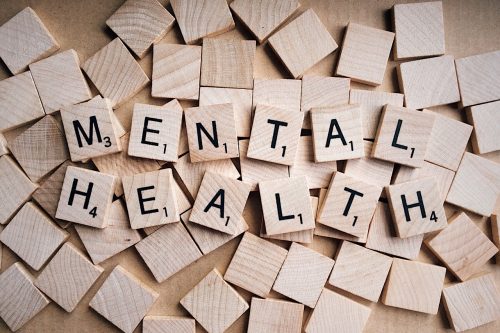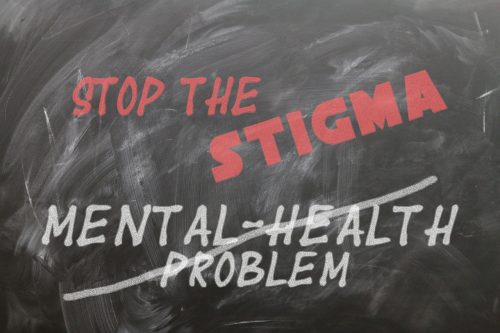
The idea of overcoming mental health issues is challenging. Anxiety, depression, OCD, and others take place when the human brain malfunctions. And this malfunction is caused by circumstances that can be overwhelming for the person’s mental, emotional, psychological and behavioral health. With that, one needs to cope with being able to bounce back.
“Major life transitions can bring up a lot past memories, increase anxiety, disorder eating and body image, and even though it’s “the happiest time of your life”, depression and other mental health symptoms are known to flare up.” Brie Shelly, MS, LMHC, RYT said. With that, getting over a mental health problem entails proper care and the right treatment. The onset of mental health conditions is out of the person’s control. Thus, you need to employ ways on how to stop the triggers. With this, you need to know which interventions will work and what won’t work.

What Works
Mental health professionals usually recommend the tips below to help their patients cope with their mental health issues. These tips were found to be very useful.
Be open with your weakness. “Our society tells us that if you talk about your issues, express your feelings, or even verbalize you have a mental health disorder, you must be “weak.”,” says Ryan Parks, M.Ed, LPCC. Don’t let pride and shame of the stigma get to you. Admit that you have a mental health condition. Letting it out in the open will enable the people around you to understand you more. Being open will also allow others to extend help to you, as well.
Remember who you are as a person and not just your condition. Get to know yourself better. Know what you like doing and those that you don’t. And what you preferences in all aspects. Going through the things that are within your liking will help lessen the chances of mental health condition occurrences.
See a mental health expert for proper diagnosis. A medical professional if you sensed some symptoms. This is a must so that you get diagnosed correctly. Having a correct diagnosis allows a physician to make the right recommendation for your condition.
Go to therapy. “Therapy can be a place where a person can feel fully accepted for who they are, with all their unique abilities, quirks, gifts and talents and where their challenges can be understood in a compassionate way.” Karla Helbert, LPC, E-RYT, C-IAYT said. Therapy treatments are always recommended for people with mental health concerns. Instead of making excuses to avoid it, set a schedule with a therapist instead. Therapy will help you overcome your condition medically. It may be tough at first, but in time, you will ease into it and realize its significance. You will see how therapy is helping you on your journey towards total healing. (If you feel skeptical about it, try the online therapy that BetterHelp provides).
Medication. Medications prescribed by your doctors are in place to regulate your mental health condition. This will keep you on the right frame of mind and thus, despite your negative opinion regarding the medications, stay on track. These meds are designed to help you and not ruin you. However, there can be instances wherein your body is not compatible with the prescription. If it happens to you, you can always inform your doctor about it so that he can give you a new prescription. Make sure that the meds you are taking are within the approval of your doctor.
Change your mindset. Instead of pitying yourself or feeling different because of your condition, change your mindset. It will do you good. New thoughts and new experiences can help you forget the things that can only dampen your mood. Think positive.
Reach out to others. Letting others know about your condition will also help you in the process. Talking it out will lift some of the weight off your shoulders, and this also allows other people to understand you even more.

What Won’t Work
There are things that people with mental health conditions do either intentionally and unintentionally that could further worsen their anxiety, depression, and other problems. These should be avoided as it can also exacerbate the condition.
Self-harming. Denial of the mental health issue can push someone to the limit. You will start to hate yourself for it and eventually do self-harm. This act is not good at all levels. There is no such thing as mild or extreme when it comes to hurting yourself physically. PLEASE AVOID THIS AT ALL COSTS. If you feel like harming yourself, call the Suicide Hotline for immediate assistance.
Alcohol intake. People with problems, either about mental health or not, often resort to alcohol intake for relief. That perceived “relief” is found to be temporary only and never permanent. It can even worsen the situation. PLEASE AVOID THIS AT ALL COSTS. If you feel like drowning yourself in alcohol, call a loved one for immediate assistance.
Shame and guilt. Feeling guilty and ashamed of your condition will not do you any good. Instead of lifting yourself, you are pulling yourself down and deeper. This will only worsen your condition. You will just feel sorry for yourself, and the tendency is that you will isolate yourself from everyone. In the end, nothing changes, and the condition will get worse. PLEASE AVOID THIS AT ALL COSTS. If you feel like isolating and locking yourself, call a loved one for immediate assistance.
Your mental health condition is uncontrollable, but you can manage the things that can be of help to your recovery. Know the actions that you need to do to get over the situation and do it religiously. It may be hard at first, but in time, you will get used to it. And then you’ll just find out that you are moving forward in getting yourself better. Don’t lose hope.